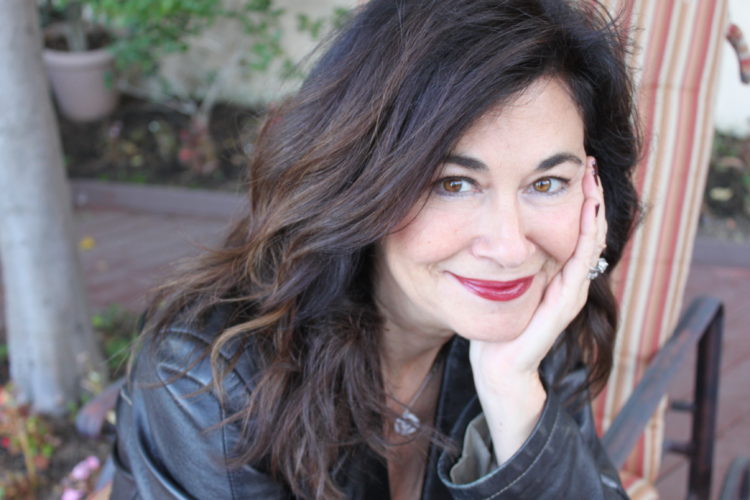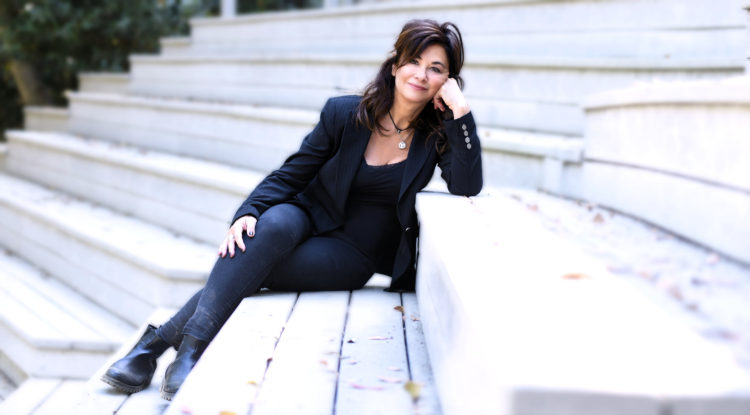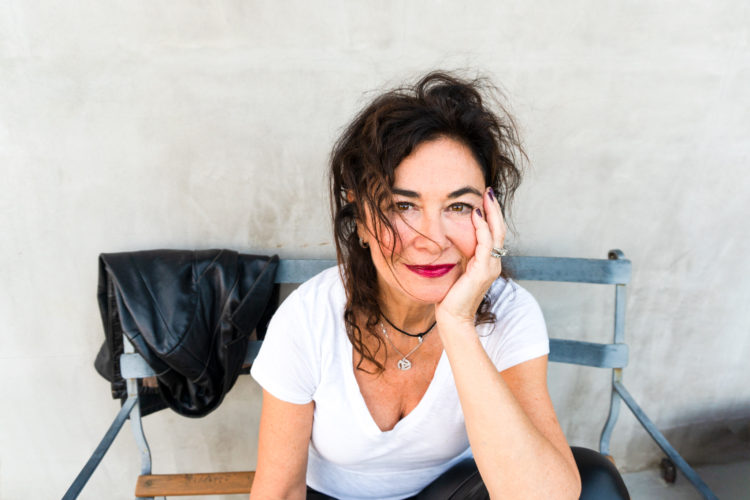
A native of Long Island, New York, and now a resident of Los Angeles, prolific professional songwriter Shelly Peiken has been crafting and collaborating on songs for a wide array of artists across a broad spectrum of styles and genres for more than 35 years.
She has had multiple hits in the charts including a chart topper [recorded by Christina Aguilera – more about that later in this article] and her creative credits adorn singles and albums by the likes of Ed Sheeran, Britney Spears, Keith Urban, Cher, Canada’s Celine Dion, Brandy, Melissa Brooks and also had hundreds of compositions licenced for television and film projects.
Peiken is a pro; she is accomplished and well connected in the music industry and has garnered an excellent living from her craft, but also a great deal of emotional satisfaction. But there was something nagging at her for many years. While by any metric she is a success, she has never recorded any of her own songs and released them to the public, even though she definitely has bother compositional and vocal chops to do so and has performed many of them live for years.
That is all changing this year as she will be releasing an album entitled 2.0 etc later in the year.
Obviously, the big question is why it has taken so long for someone with the obvious compositional skills, knack for memorable melodies and a lovely and emotive singing voice to release an album under her own banner. Well, it’s complicated.
“Four or five years ago, when the digital economics had changed the way that songwriters get paid, we were all realizing that our statements were shrinking. And because technology had made it so that tens of thousands of more people could be, quote/unquote songwriters without ever having been a musician or writing a full lyric, there were now so many more of us. So, it was harder to get into [writing] rooms. There was way more competition,” she said.

“I was getting older and wondered if younger people even wanted me in the room. I was going through a real kind of existential crisis: this could either be the end or it could be a renaissance. And that’s when I started writing about those feelings and those feelings sort of compiled themselves into a nice little emotional arc, and that was published as a memoir, [Confessions of a Serial Songwriter, released in 2016] which I narrated as an audio album, and that was nominated for Best Spoken Word album for the 2017 Grammys. I thought that was a great experience. I sort of stopped what I was doing and started something else. I really loved the process of writing a book, and it took me to this wonderful place. I felt like the universe was trying to tell me to follow that truth, follow that bliss, which I did.
“A few years later, which was last year, I thought maybe it was finally time. I’m not getting calls from Adele or Rihanna. Their gatekeepers are thick; they have their own posse that they like to call on to write. Whatever I did write was going to get divided into halves and third and quarters until who knows if I could ever make a living again actually writing the songs. Streams don’t earn me any kind of living. You have to have a bit hit on the radio, like FM terrestrial radio. All that middle class of writers that used to write what I call all those ‘nutritional’ album cuts, couldn’t make a living anymore. That middle class had fallen away. So, I thought, ‘I have had a handful of really big hits that I still rely on t support me. I am not going to go broke. I have saved money because I never thought this would last forever. Maybe it’s time to make that album.’”
What really solidified the decision was the serendipitous timing of the anniversary of one of her biggest hits, What A Girl Wants, by a then very young Christina Aguilera. It was the first number one song of the 21st century, an accolade that can never be repeated – at least not for another 980 years.
“I thought that was a landmark. Why don’t I recut that song and then I could also recut a bunch of songs that, I felt that if I did them in my own voice, are definitely a reflection of who I am, not of the artist who recorded them. I am grateful to the artists who brought them to light in the first place, but why not do it in my own voice, as I used my own voice to write them. When I started doing that, it felt as right as the book felt when I started writing it, and the project took on a life of its own,” Peiken explained.
“I am calling the album 2.0 etc, and there are six songs where I guess I am covering myself, and the five songs that nobody has ever heard, that never got recorded that I want people to hear. The songs I recorded that were covered by others were What a Girl Wants; Bitch, which I wrote with Meredith Brooks [which made it to #2 on the Billboard charts]; Human on the Inside, which I gave to Chrissie Hynde a number of years ago which she recorded with The Pretenders, and she actually sang background vocals on my version. Then there’s Who You Are, which I wrote with Jessie J and Almost Doesn’t Count, which was recorded by Brandy and also in the country world by Mark Wells. The criteria were they had to be songs that were hits because they had to be recognizable, so that the people could say, ‘wow, I know that song, but who’s singing it?’ They also had to be songs that I loved and felt comfortable singing.”
In digging deeper into the creation of these and other of her biggest hit songs, Peiken said that, for her, the best songs, the most successful of her compositions, are still the ones for which she has a significant emotional and personal attachment and motivation for writing in the first place.

“I think a person starting out should learn the rules of structure because there is a psychological and emotional flow and expectation as to how a song moves and how a song unfolds. Then when I think you’ve learned that, and you’re crafty, you can veer from that structure as long as you replace that expected heartbeat with something that serves to replace it. But not all the time. And there are writers out there who are really savvy at writing a song that makes you want to dance to it, that doesn’t have any deep emotional confession to it. And more power to them. Honestly, I wish I could write more of them. They are valuable, not just monetarily but because they make people feel good, and we’re going to need more of those these days,” she said.
“Those songs have value, I think what I find particularly natural for me to write and connect with is that very personal, flawed perception of myself and the human condition and human relationships and the things I want that I will never have, the things I lost that I will never get back, the things I have that I will one day lose – that vulnerability is central for me. But that’s just me. And I am sure you know lots of other songwriters who find it easy and natural to write about something else. I have learned that when something strikes you as ‘songable’ you have to stop what you are doing and jot it down, or dictate it on your phone, or document it on any device with any utensil that you can. Because if you are prolific, you’re going to have so many of these things that you’re not going to be able to remember them. You think you will, but you might now.”
Of the new, or at least ‘previously unheard’ songs on the album, the wonderfully nostalgic and sweetly emotive George & John has already been released. Through the vehicle of this song, Peiken has masterfully explored the depth of sadness and grief over the loss of an intimate relationship, the realization that there are only two Beatles remaining – Paul McCartney and Ringo Starr – and that they can never be together again.
“I’ve been a Beatles fanatic since I first heard them as a kid, and I don’t have to go into why someone would be so fanatic about them; there are enough of us who are, and they get it. When we lost George Harrison [in 2001] as well as John Lennon [in 1980] I as a songwriter was building this song in my head, or in my heart about how I could write something that could be an emotional analogy between the way I felt about a break up and losing half of yourself in that break up, with the way my heart is broken with being without half the Beatles, knowing that they will never exist as a whole any more,” she said.
“It was a complicated song to write. I was discussing it on a writing trip a couple of years ago when I was in London with my friend Phil Thornalley, who feels the same way about the Beatles, and who is also an incredible songwriter and producer. He said, ‘you know, I want to try and write that music.’ And the thought in my head was, ‘good for you, but I don’t think I will ever write that song because I don’t think that anybody will ever be able to write a piece of music that’s going to marry with my idea.’ A couple weeks after I got back to L.A., he sent me this piece of music and when I hit ‘play’ I could not believe it – he nailed it. I never got up from the chair; I put headphones on, and the words just started coming, and coming and coming. It’s like they were channelled.
“I was just so excited about this and putting it out and sharing it with Beatles fans and just with songwriters who know how hard it is when you get a concept to be able to execute it correctly. You can’t just have a great idea and write it and just because it’s a great idea it will work. Sometimes it just doesn’t resonate. But with George & John, I think we got it right.”
A song that needs to be listened to with a hanky or tissues nearby is the simply beautiful ode to motherhood entitled Notebook.

“I wrote that song for my daughter about a journal that I have kept since the day she was born, and each page has a little anecdote or something funny she said or the way she put a certain thing that just made me laugh or love her more. About a couple of years ago, she was a college student abroad, and she called me one day and said, ‘mommy, I am having a hard time. I keep dreaming that you’re dying.’ And I thought, oh my God, I am anything but dying. I feel so alive, but it spurred me to pick up my guitar and use that as the first line of this song: ‘My daughter keeps on dreaming that I’m dying.’ And in the song, I am saying to her that I am still alive, but if anything ever happens to me, find this journal because all of these wonderful feelings I have for you are in it. So, if there comes a day when I am not here, curl up with it, and read it and you will hear my voice,” Peiken explained.
“It’s very heavy in a way, but it’s also a very delightful song, and we’re going to release it right before Mother’s Day, in honour of the mother/child unions. It’s funny, when I play that song live and I sing that first line, I can tell that the audience, they don’t know how to take it. Some people laugh because it makes them feel uncomfortable, they don’t know exactly what the song is going to be about. But by the time I get past that first hook, I see the tissues come out. And that wasn’t my aim. I didn’t write a song because I wanted to make people cry. I wrote it because I feel so much love for my daughter.
“And I am pretty sure nothing is going to happen to me any time soon, but every mother goes through this. What if it does? What do I want my daughter to know? What do I want to leave behind? I am trying to encourage every mother, mother to be, grandmother and daughter to write it down. – write it down in your own handwriting. The only thing I have of my mother in her own handwriting is a recipe for rice pudding. Thank God she loved me good; she didn’t have to write anything down; her love was abounding. But, gosh, if she had written a whole journal for me and I had that. Amazing. So, there’s a song that’s never been cut by anyone else and I don’t care. I am glad I am the first person to put that out into the world. It’s a very powerful and personal song.”
For more information on Shelley Peiken and 2.0 etc., visit www.shellypeiken.com.
- Jim Barber is a veteran award-winning journalist and author based in Napanee, ON, who has been writing about music and musicians for 30 years. Besides his journalistic endeavours, he now works as a communications and marketing specialist. Contact him at jimbarberwritingservices@gmail.com.
SHARE THIS POST:
